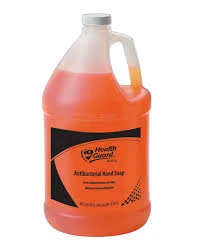Effects of Scale and Corrosion Inhibitors on Cooling Tower Efficiency and Maintenance
Scale and Corrosion Inhibitors for Cooling Towers
Cooling towers are essential components in various industrial processes, including power plants, chemical manufacturing, and HVAC systems. They play a critical role in dissipating excess heat and maintaining optimal operating temperatures. However, the operation of cooling towers can lead to significant challenges, particularly with scale formation and corrosion. These issues not only reduce the efficiency of the system but can also lead to costly repairs and downtime. Therefore, the use of scale and corrosion inhibitors has become a crucial aspect of cooling tower maintenance.
Understanding Scale and Corrosion
Scale is the buildup of mineral deposits on the surfaces of cooling systems, primarily caused by the evaporation of water, which concentrates dissolved solids. Common minerals that contribute to scale formation include calcium, magnesium, and silica. When these minerals precipitate out of the water due to temperature changes or increased concentrations, they can form hard, adherent deposits on the heat exchange surfaces, pumps, and pipes, leading to reduced heat transfer efficiency.
Corrosion, on the other hand, is the deterioration of materials, typically metals, due to chemical reactions with the environment, such as water and oxygen. In cooling towers, corrosion can result from aggressive water chemistry, including low pH levels, high oxygen content, and the presence of dissolved salts. The effects of corrosion can be severe, causing leaks, failures, and other operational issues that can compromise the integrity of the cooling system.
The Role of Inhibitors
To combat scale and corrosion, chemical inhibitors are commonly added to the cooling water. These inhibitors work by forming a protective film over metal surfaces to prevent corrosion or by interfering with the mechanisms of scale formation. There are several types of inhibitors, each designed to target specific types of scale or corrosion processes.
scale and corrosion inhibitor for cooling tower

1. Scale Inhibitors These chemicals are primarily phosphonates, polyacrylates, or organophosphates. They prevent scale formation by destabilizing the crystallization processes of minerals, effectively keeping them in solution. By doing so, they minimize the fouling of heat exchangers and reduce pressure drops in the system, which leads to improved energy efficiency.
2. Corrosion Inhibitors Common corrosion inhibitors include corrosion-resistant alloys, azoles, and nitrogen-containing compounds. These inhibitors either passivate the metal surface by forming a protective layer or chemically bind to the metal ions, preventing them from reacting with corrosive agents in the water. The choice of corrosion inhibitor often depends on the type of metallurgy used in the cooling system and the water chemistry.
Beyond Inhibitors A Comprehensive Approach
While scale and corrosion inhibitors are effective tools for maintaining cooling systems, they should be part of a comprehensive water treatment program. Regular monitoring and testing of water quality are essential to adjust chemical dosing accurately. Parameters such as pH, conductivity, hardness, and the concentration of dissolved oxygen should be routinely checked to ensure that the cooling water remains within optimal operating conditions.
In addition to chemical treatments, mechanical maintenance practices, including regular cleaning of the cooling tower, removal of debris, and inspection of components, can help mitigate scale and corrosion issues. Implementing a proactive maintenance strategy can significantly extend the lifespan of cooling equipment and improve overall system performance.
Conclusion
Scale and corrosion are two of the most common issues faced by cooling towers in industrial applications. The implementation of scale and corrosion inhibitors plays a vital role in maintaining the efficiency and reliability of these systems. By understanding the mechanisms of scale and corrosion and employing appropriate inhibitors, along with regular maintenance and monitoring, operators can optimize the performance of their cooling towers, reduce operational costs, and extend equipment longevity. Careful planning and effective management practices are the keys to ensuring that cooling towers operate smoothly and efficiently in the long run.
-
lk-319-special-scale-and-corrosion-inhibitor-for-steel-plants-advanced-solutions-for-industrial-water-systemsNewsAug.22,2025
-
flocculant-water-treatment-essential-chemical-solutions-for-purification-processesNewsAug.22,2025
-
isothiazolinones-versatile-microbial-control-agents-for-industrial-and-consumer-applicationsNewsAug.22,2025
-
scale-inhibitor-key-solutions-for-water-system-scale-preventionNewsAug.22,2025
-
organophosphonates-versatile-scale-inhibitors-for-industrial-water-systemsNewsAug.22,2025
-
scale-and-corrosion-inhibitor-essential-chemical-solutions-for-water-system-maintenanceNewsAug.22,2025





